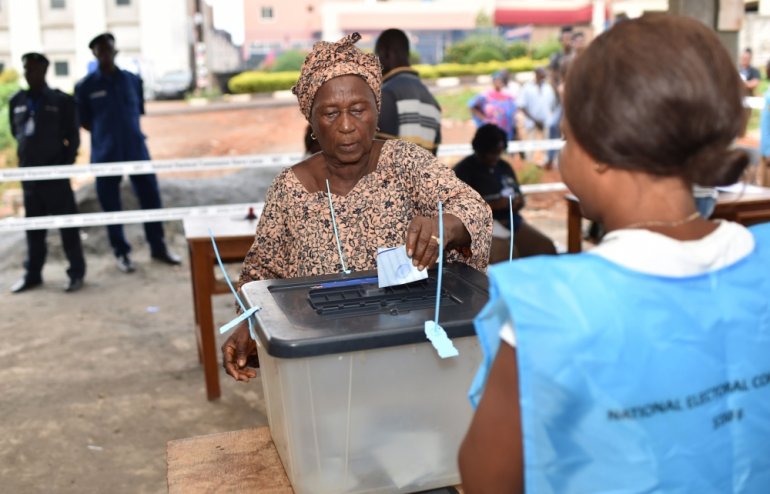The government of Sierra Leone has joined the trend of government-mandated Internet shutdowns during important national events such as elections. Several reports show that authorities in the country shut down the Internet and disconnected all mobile communication services after elections ended on March 31, 2018 in the presidential runoff.
According to the Open Observatory Network Interference (OONI), an internet censorship organisation, there was a noticeable decrease in Google Search traffic data on the said date.
There has not been an official communication from the government. However, an election monitoring group, Sierra Leone Decides reported on Sunday (April 1) that Internet Service Providers (ISPs) said the measure was to stop the National Electoral Commission and other bodies from sharing results on the elections with party affiliates.
Increasingly, African governments are using Internet shutdowns to stifle dissent during elections and/or protests, mostly citing the need to ensure “national security” or to prevent the spread of “false information.” Uganda, Chad, Republic of Congo, The Gambia and most recently, Somalia’s self-declared Republic, Somaliland have disconnected the Internet during elections. On the contrary, Ghana, Kenya, Rwanda, Angola and Liberia did not disconnect the Internet during elections.
Other countries such as the Democratic Republic of Congo, Cameroon, Ethiopia, Burundi, Chad and Togo have shut down the Internet during protests.
The African Freedom of Expression Exchange (AFEX) condemns the worrying trend of African governments shutting down the Internet during such important national events. The United Nations Human Rights Council in June 2016 unequivocally passed a resolution denouncing countries that “intentionally disrupt citizens’ internet access.”
AFEX reiterates that the Internet is an enabler of other fundamental rights of citizens and plays a central role in promoting citizens’ participation in national discourse to enhance the democratic principles of every country. It is therefore imperative for authorities to on the continent ensure that Internet services are accessible at all times. We implore the Sierra Leonean government to uphold freedom of expression and access to information rights of citizens both online and offline. AFEX also urges ISPs to strictly respect citizens’ rights to freedom of expression and access to information online by demanding court orders or warrants before accepting to shut down the Internet.




